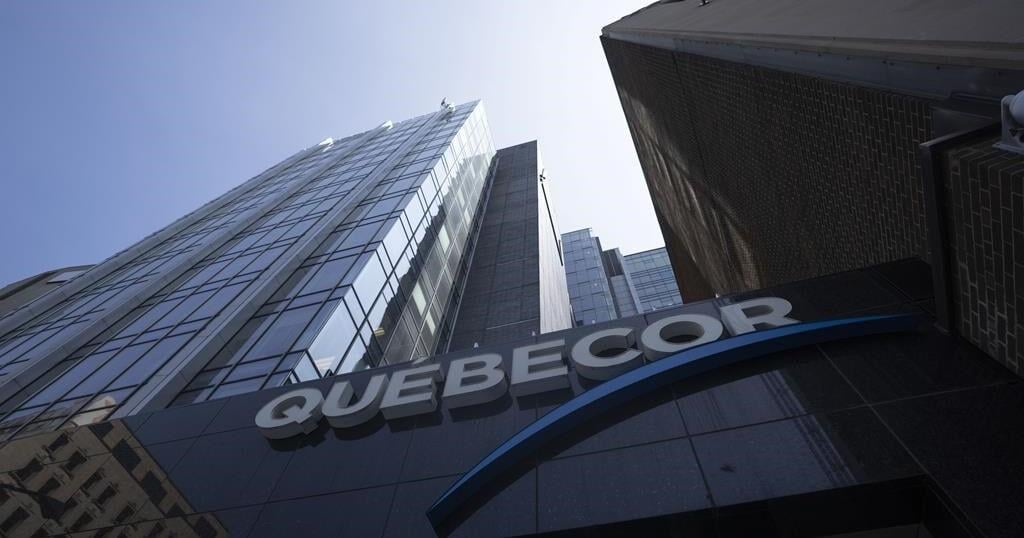Quebecor Inc. says it’s pushing Canada’s telecom regulator to help resolve network access issues that are holding back the Quebec-based company’s expansion plans.
The company has been making use of the mobile virtual network operator system, which allows telecom companies to offer cellphone service through rival carriers’ networks, but chief executive Pierre Karl Péladeau said on an earnings call Thursday that other companies aren’t following the rules.
“I must call out Bell’s continued and systematic obstruction to finalize our (mobile virtual network operator) contractual agreements with them against the clear guidelines,” said Péladeau.
“Our main competitor is unduly delaying a situation that should have been resolved a long time ago, still forcing us to pay outdated and unfair rates.”
The company has maintained it needs the access regime to level the playing field as it works to build out its 5G network across Canada.
Péladeau called on regulators to push for a quick resolution of the impasse.
“We are calling on the CRTC to resolve this situation quickly so we can all go about our business of providing healthy competition as mandated by the Canadian government and authorities.”
BCE Inc. did not immediately respond to a request for comment.
The need for access to other carriers’ networks comes as Quebecor works to expand its Freedom Mobile brand in Canada, in part through a recent announcement that all Freedom monthly plans will include access to the 5G network, along with roaming services in the U.S. and Mexico.
The standardization of the features comes as competition remains fierce in Canada’s telecom industry following the big shakeup that saw Quebecor acquire Freedom in April last year, while Rogers Communications Inc. took over Shaw Communications.
Quebecor reported a 0.8 per cent dip in revenue in its second quarter to $1.39 billion.
The tick lower came as telecommunications revenue fell 1.2 per cent, while sports and entertainment revenue dropped seven per cent.
The drop in revenue came despite the company’s net increase of 66,200 subscribers in the second quarter, including 93,500 mobile subscribers.
The added subscribers came in a quarter where the company announced it was expanding its geographic reach, bringing both its Freedom and Fizz brands to several regions including Manitoba. The company is relying on access agreements to the networks of other carriers to make the expansion, which is why it’s pushing on resolving outstanding issues with the regime.
Second-quarter net income worked out to $206.6 million, up from $171.3 million a year ago.
The company says its profit amounted to 90 cents per diluted share for the quarter ended June 30 compared with a profit of 73 cents per share a year earlier.
Quebecor says its adjusted income from operating activities amounted to 89 cents per share in its latest quarter, up from 79 cents per share a year earlier.
Results came in slightly ahead of expectations, said RBC analyst Drew McReynolds, as wireless loading saw a “nice uptick”, offset by pressure on its television and telephone subscribers.
This report by The Canadian Press was first published Aug. 8, 2024.
Companies in this story: (TSX:QBR.B)
